Battle of Brienne
Date and place
- January 29th, 1814 at Brienne-le-Château, in Champagne, France (now in the Aube department, part of the Grand-Est region).
Involved forces
- French army (30,000 men) under Emperor Napoleon the First.
- Prussian and Russian army (25,000 men) under Field Marshal Gebhard Leberecht von Blücher.
Casualties and losses
- French Army: 3 to 4,000 men killed, injured or lost.
- Allied Army: 4,000 men killed, missing or wounded.
Aerial Panorama
The Battle of Brienne was the first major engagement of the French campaign. General Bluecher narrowly escaped capture and Napoleon death. All in all, however, this battle, which could have changed the course of the war, had no significant consequences.
The general situation
At the end of January 1814, after joining forces with Generalissimo Karl Philipp Fürst zu Schwarzenberg in the Seine and Aube valleys, Gebhard Leberecht von Blücher, spurred on by his usual ardor, immediately began his march towards Paris .
The fights
From Brienne , he launched the head of his column across the Aube via the bridge of Lesmont [48.42801, 4.41168] towards Arcis-sur-Aube in the northwest, and prepared to follow it, without fearing the risk of being separated from the Austrian forces once again.
Napoleon decided to take advantage of it. He rushed towards Brienne. Attacked at the head by Marshal Adolphe Edouard Mortier's troops waiting for him at Troyes , at the tail by the Emperor himself, cut off from the rest of the Allies, Blücher was supposed to be lost.
But fate intervened. A French orderly officer was caught with dispatches that revealed to Blücher the danger he was in. Without missing a beat, he recalled his column head and concentrated around Brienne.
The French corps, hampered by the nature of the terrain, failed to enter the battlefield simultaneously. Their successive, poorly-coordinated efforts succeeded in pushing the enemy back into Brienne, but by nightfall the town was still held by the Allies, while the French seemed to be at a standstill on the plain .
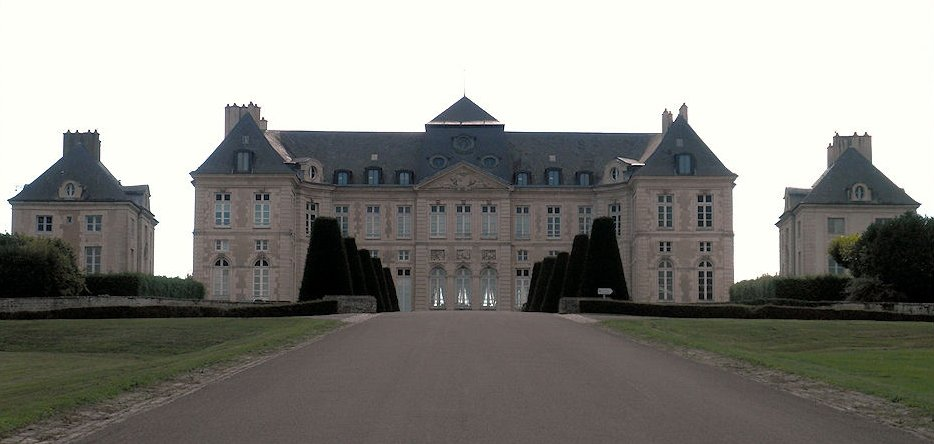
In the castle [48.391527, 4.52062] overlooking the town, Blücher and his staff were already drinking in the success of their resistance when Napoleon ordered a renewed attack. The old Prussian marshal almost got caught but escaped with the help of a German established in Brienne, named Joseph Dietschin, and returned with reinforcements.
A night battle ensued. The town was taken and retaken several times, while the château, occupied by a French battalion, victoriously resisted repeated assaults. According to witnesses, the battle was one of the most furious of the campaign.
Several generals were killed or seriously wounded. Marshal Alexandre Berthier was hit in the head by a spear. Napoleon himself was exposed:
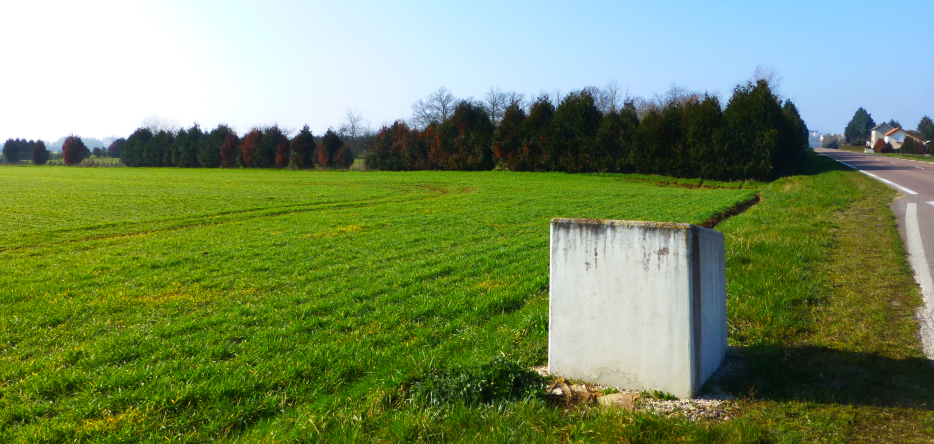
Towards the end of the fight, northeast of Brienne on the road to Juzanvigny [48.40478, 4.54811], Gaspard Gourgaud, Napoleon's aide-de-camp, saved his life by pistol-whipping a Cossack who is about to spear the Emperor (Gourgaud had already rendered this invaluable service to Napoleon in Moscow in 1812).
Aftermath
When the fighting finally ceased, everyone remained at the ready until the early hours of the morning. Only then did the French realize that the enemy had retreated.
Their success, however, fell far short of expectations. The Prussian corps was neither destroyed nor cut off from the rest of the Allied army. On the contrary, pushed back southeast to the Bar-sur-Aube road, it marched towards it.
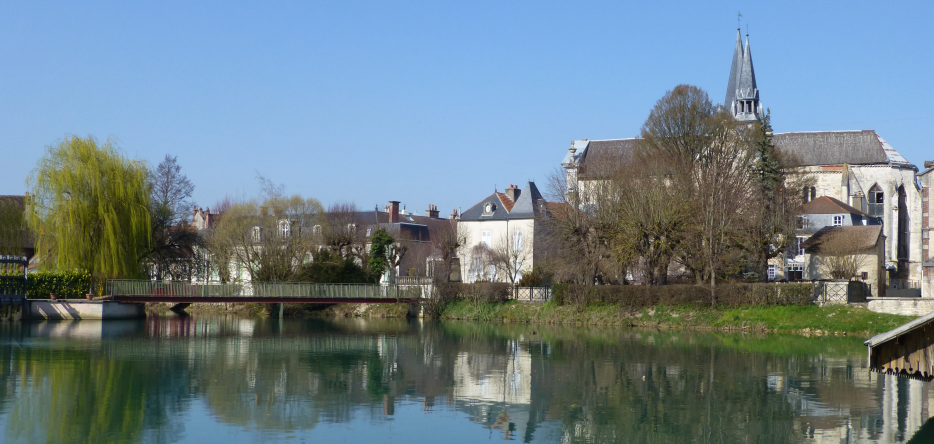
What's more, with both armies suffering similar losses, the French numerical inferiority remained as crushing as ever.
Map of the battle of Brienne
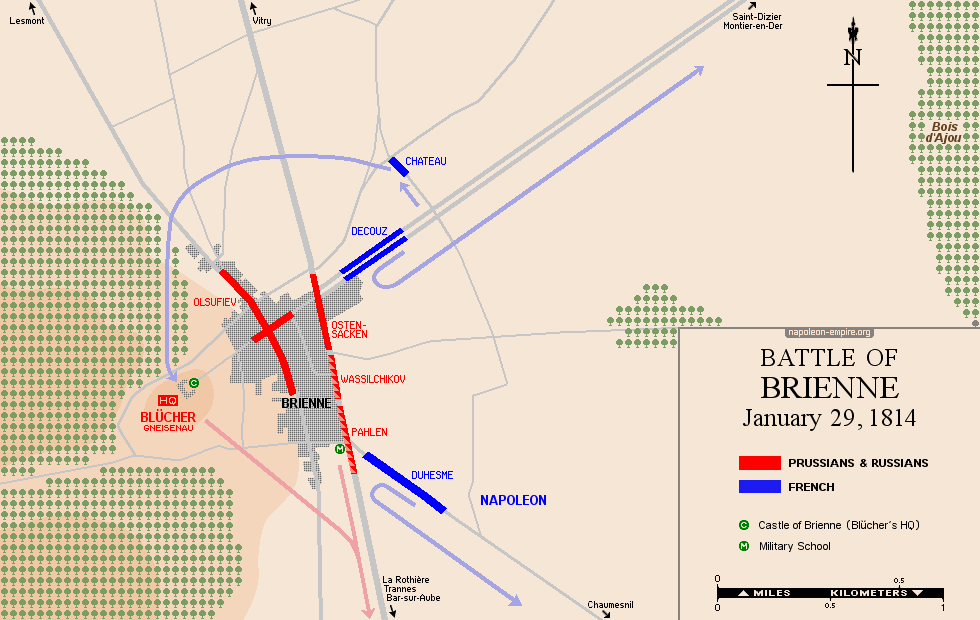
Picture - "Battle of Brienne, January 29th, 1814". Painted by Theodore Yung.
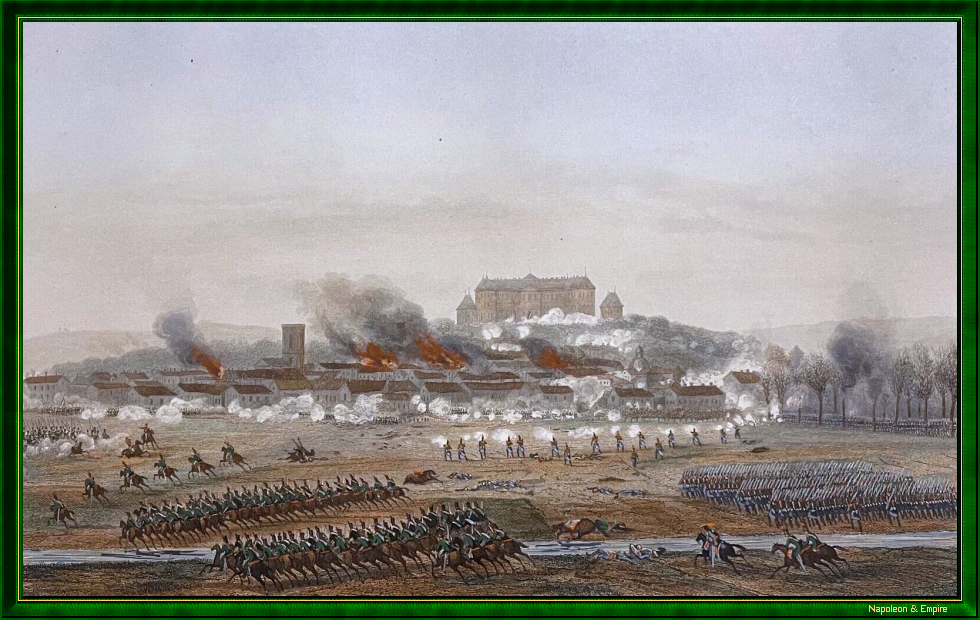
 Display the map of the Campaign in northeast France in 1814
Display the map of the Campaign in northeast France in 1814
Photos Credits
Photos by Lionel A. Bouchon.Photos by Marie-Albe Grau.
Photos by Floriane Grau.
Photos by Michèle Grau-Ghelardi.
Photos by Didier Grau.
Photos made by people outside the Napoleon & Empire association.